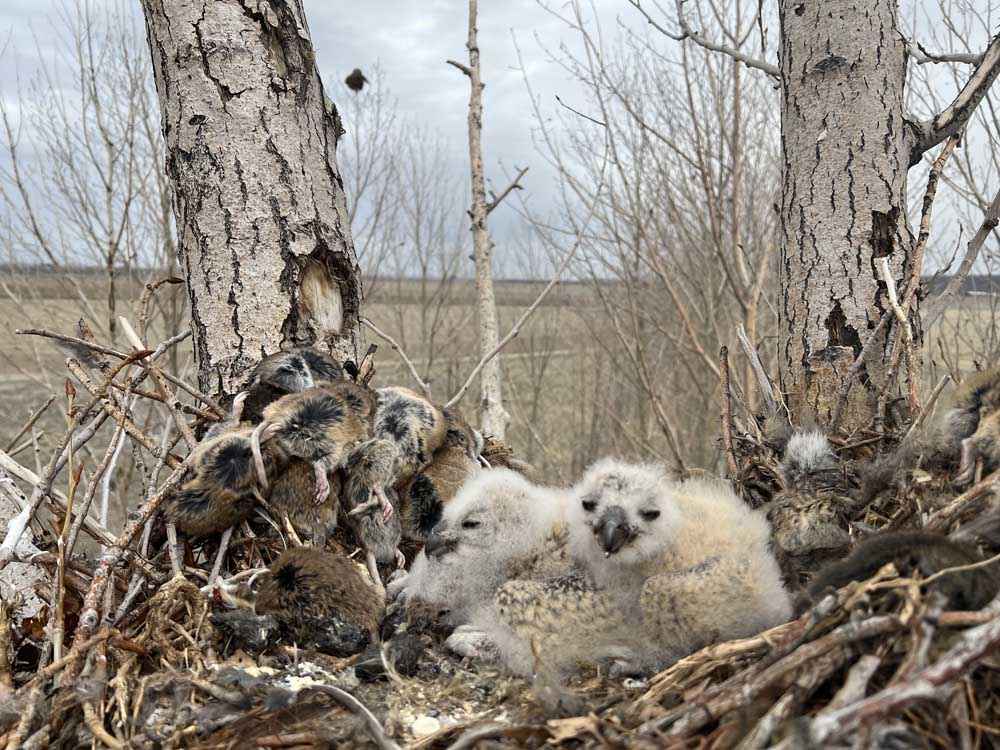It’s baby-bird season! Great horned owlet rescued, reunited with wild parents
Published 1:27 pm Monday, March 25, 2024

- The rescued owlet was re-nested with its sibling.
Last week, the Sunriver Nature Center and Think Wild — two of Central Oregon’s wildlife rehabilitation centers — rescued their first baby owl of this spring, heralding the start of what the Sunriver Nature Center’s program director, Kelli Neumann, affectionately called, baby-bird season.
The great horned owlet, which was found on the ground near Christmas Valley, was only a few days old when Neumann went to retrieve it on the morning of March 20.
After Neumann transported it to Think Wild’s wildlife hospital, the staff determined the owlet was hypothermic with slight abdominal bruising but had not sustained any major injuries. It was given fluids and stayed in an incubator for two days until staff determined it was healthy enough to be re-nested.
While Think Wild and the Sunriver Nature Center can care for orphaned animals, rehabilitation and release is always the goal. Staff from the Sunriver Nature Center were able find the owlet’s nest and reunite it with both its wild parents, who had a healthy stockpile of ground squirrels just waiting to be eaten.
Songbird populations are declining across Central Oregon. Three things you can do to help
Sunriver Nature Center says goodbye to Aquila the golden eagle
Bend park district trail cameras capture bobcat, coyote and other wildlife
“Those parents are doing a great job,” Neumann said. “We’re really glad this little one was that best-case scenario. Everybody’s really stoked about the results.”
This incident also demonstrates best practices for the public going into baby-bird season, Neumann said. Like those who found the owlet, the best thing to do if you see a baby bird on the ground is to contact a wildlife rehabilitator who can help determine if it’s best to leave the bird where it is or if someone needs to come out to retrieve it. Usually, older birds can be left alone and will eventually find their way back to their nests, Neumann said, but younger birds like this owlet might need additional care.
“People are afraid that is human scent gets on the young, it will prevent them from taking care (of the owlet) or they will become aggressive. Parents are definitely protective of their nest, but they have an underdeveloped sense of smell, and they really don’t care what’s happened to the baby until it’s gotten back. Once it gets back, they take over parenting duties,” Neumann said.
Think Wild’s wildlife hotline is 541-241-8680 and Sunriver Nature Center’s staff can be reached at 541-593-4442.








